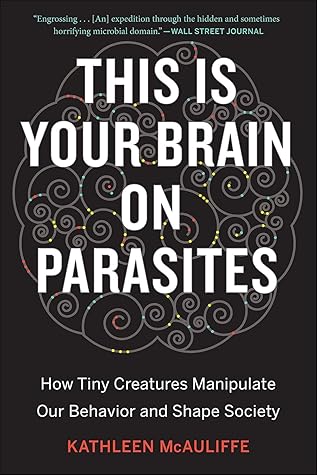More on this book
Community
Kindle Notes & Highlights
Read between
July 2 - August 30, 2017
To turn up the body’s thermostat just one degree Celsius requires roughly the same number of calories that an average adult would expend walking forty kilometers.
Tabanid flies can siphon off a pint of a horse’s blood in a day. Just half a dozen engorged ticks on a delicate gazelle or impala can weaken these fast sprinters, turning them into easy marks for predators. Warble flies can reduce the annual weight gain of cattle by twenty to seventy kilograms (about fifty to one hundred and fifty pounds).
sex itself may have evolved as a defense against parasites.
novel theory posits that sleep evolved to shunt resources that would normally sustain waking activities toward the immune system.
lowering concerns about the risk of infection—for example, by vaccinating subjects—can effectively shut down the behavioral immune system,
they found greatest opposition to immigration where contagious disease was most prevalent and, predictably, where worry about infection was highest.
disgust sensitivity correlated with a tendency to judge crime more severely and punish the perpetrators with longer sentences—and
Americans were the most collectivistic in the very states—mostly in the Deep South—where Centers for Disease Control and Prevention figures indicated infectious disease was highest.
Countries under severe parasite stress were more likely to be controlled by dictators; gender inequality was pronounced, and wealth tended to be concentrated in the hands of a small class of elites. In contrast, countries with the least amount of infectious disease had wealth more equitably distributed; their women were on a more equal footing with men, and individual rights were far more extensive. They were overwhelmingly democracies.


